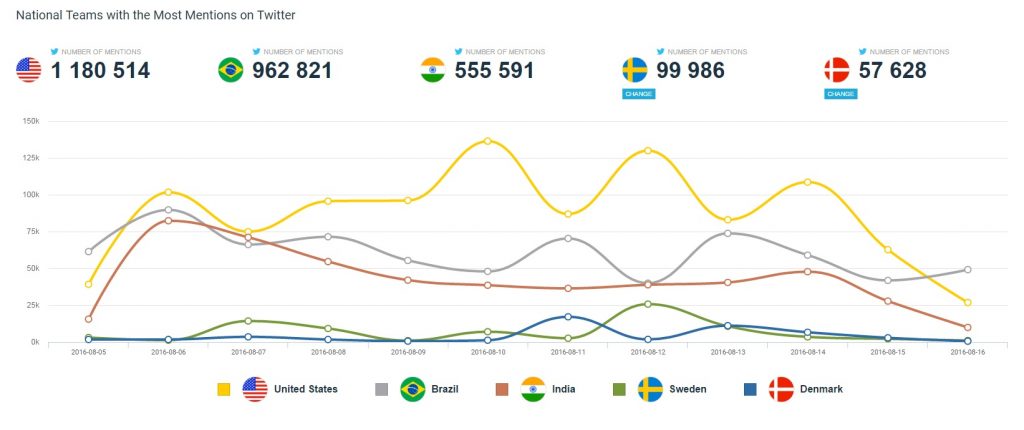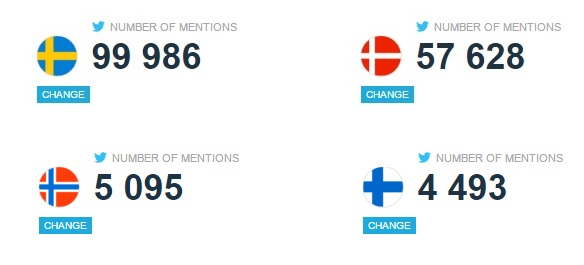The Olympic games in Rio 2016 are engaging large audiences in social media. However, some reports suggest that the volume of interactions in social channels are lower than expected. A survey of US viewers shows that fewer people are following the Olympic Games via social networks than had said they expected to.
But many people are commenting and sharing views on Twitter for example. According to statistics from Socialbakers, the US and Brazil are the countries that most people are tweeting about, followed by India.
Most interactions about Sweden
If we look at Twitter conversations about the Nordic countries, Sweden is clearly in the lead before Denmark (Aug 5 – Aug 16). Almost 100,000 tweets about Sweden and 57,000 about Denmark. There are significantly fewer comments about Norway and Finland. The peak for Sweden came after the women’s football team beat USA in the quarter finals on penalties.
(click for larger image)
More statistics on social media at the Olympics can be found here.

